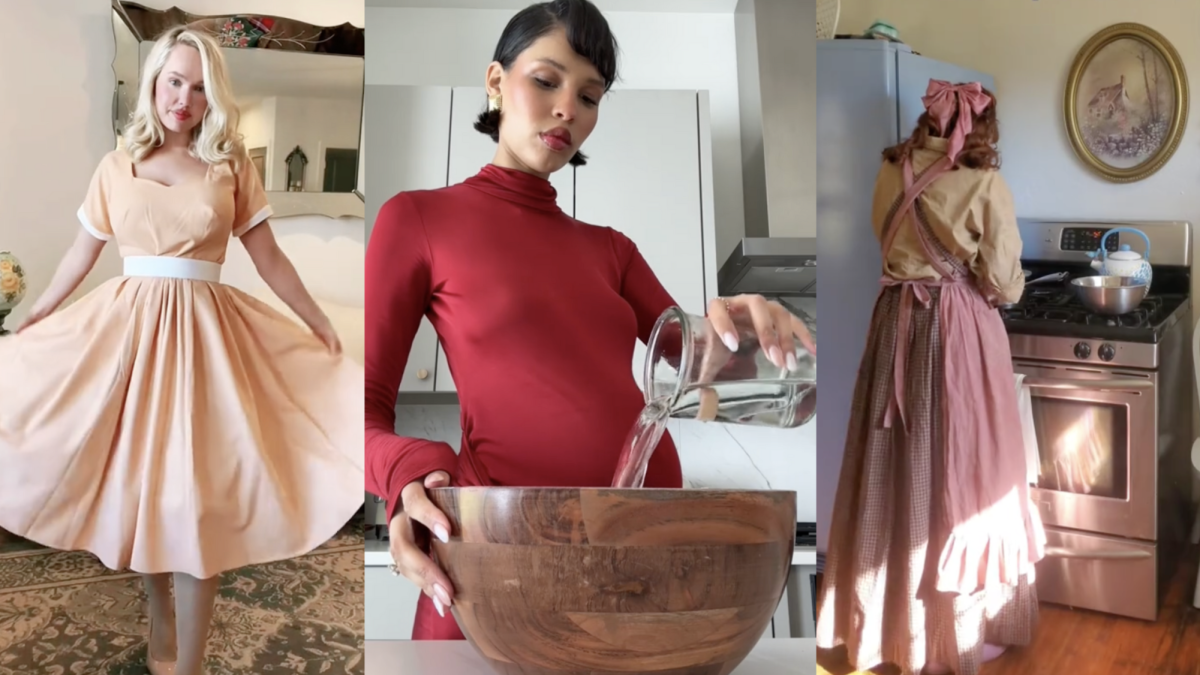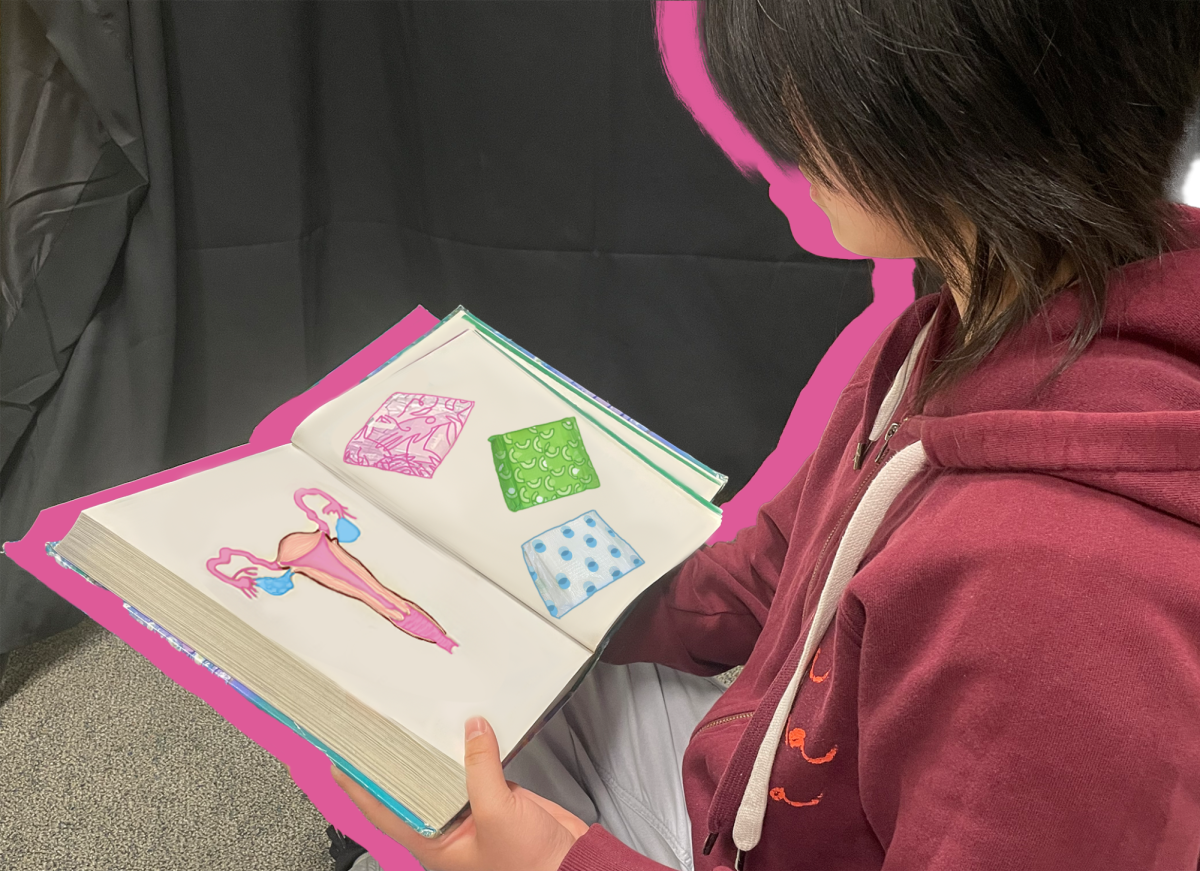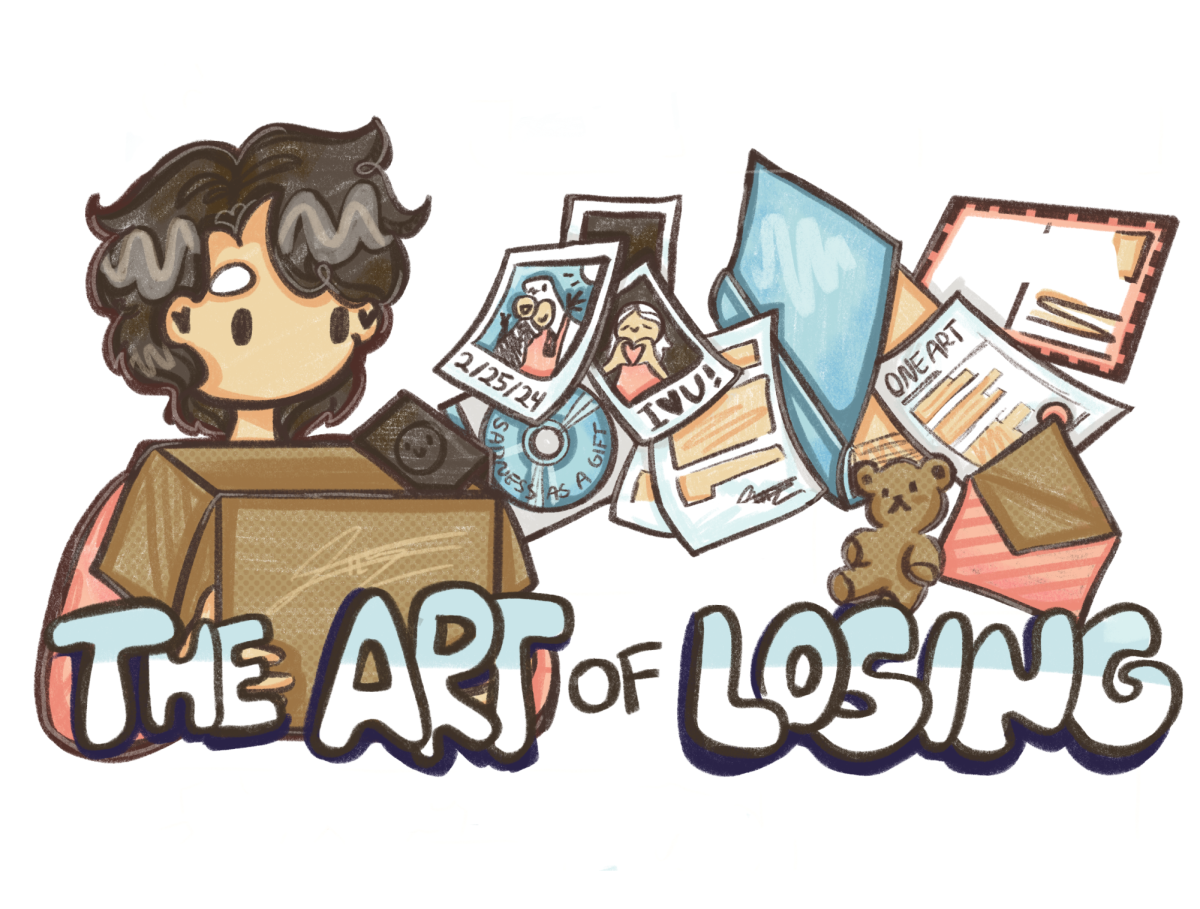“As a woman, your top priority should be wife and motherhood,” Estee Williams said, a self-proclaimed traditional wife (better known as tradwives) on TikTok. She is one of the faces of the tradwife movement and encourages femininity through her 1950s pinup aesthetic and traditional values.
However, Williams is not alone. When scrolling through Instagram and TikTok, users will see an influx in videos surrounding women in long, floral dresses, cooking food from scratch and preaching traditional values. They often have multiple children and seem to always have another baby on the way. Their husbands leave in the morning to work their white-collar jobs and come back to spotless houses and dinner on the table.
These families promote traditional values, especially traditional femininity. Tradwives embody the ideals of feminine women: they’re nurturing, motherly, loving, caring, warm and welcoming. On social media, we’ve seen larger creators, men and women alike, promote embracing femininity and returning to traditional gender roles in a world which seems to progressively move away from them.
Homemakers do work incredibly hard to keep their house running smoothly and play a variety of vital, underappreciated roles. They pack school lunches, do the laundry, buy the birthday gifts and stock the pantry. However, when the tradwives falsely claim feminism is about not wanting to care for their husband or children, it becomes an issue. This stems from a false ideology that feminism degrades men and women will do whatever they can, at any cost, to achieve self empowerment.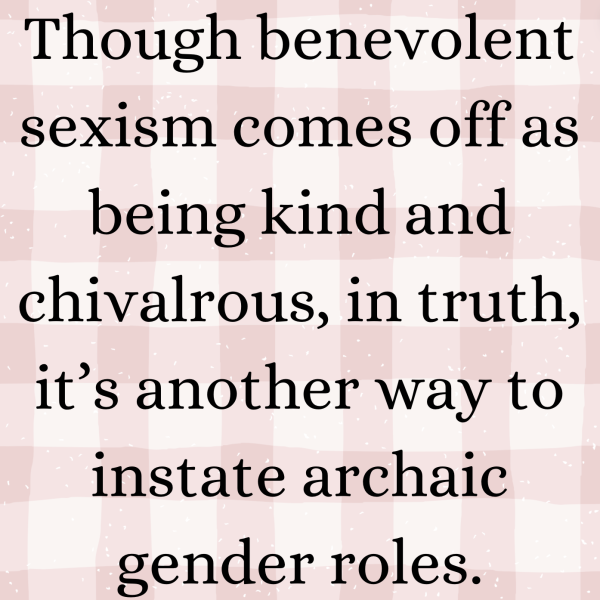
With more people denouncing feminism and encouraging women to embrace their femininity, we see an influx in benevolent sexism. Benevolence is the act of kindness or an inclination to be kind. Sexism can be divided into two spectrums: hostile sexism, which is stating outright that women aren’t as good as men and benevolent
sexism, which is playing on traditionally feminine traits that suggest that women should stay at home. Tradwives portray ideal women by exhibiting these traits: they nurture their many children and create a warm, loving environment. Though benevolent sexism comes off as being kind and chivalrous, in truth, it’s another way to instate archaic gender roles. It insinuates that women are more warmhearted, yet weaker, than men, so they are better suited to stay at home.
Benevolent sexism makes women feel like they have to be at home to be “good women” – typically synonymous with “good wife and mother.” Forcing ideas like their inadequacy in certain work fields and how they’re better suited to others diminishes their role in society as viable contributors. When people use sentences like “masculinity needs to be earned, femininity needs to be protected,” it establishes men as the sole protectors and providers. According to this idea, women need men to be successful and happy.
This strips being a stay-at-home parent of its importance. Because women are seen as “weaker” or “less smart” than men, their traditional gender roles appear to be lower-status or less vital than traditionally masculine jobs. With tradwives’ videos suggesting that baking bread from scratch or homeschooling children should be expected of women in order to keep up with men, women feel like they have to take on these huge responsibilities. Phrases like “the right man will make you want to” diminish the huge amount of effort that goes into this kind of work.
With the rise of tradwives on social media, it’s vital we keep in mind that traditional values are not the only way to have a healthy relationship or the only way to have a happy family. Women do not need to be mothers, cooks, housekeepers, teachers or gardeners to have value as human beings. They are not diminished by taking on traditionally masculine roles, nor are they intentionally hurting men. Men can also take on traditionally feminine roles and do them just as well.
Since benevolent sexism has such a large role in the workplace, as we get older, we should actively attempt to move away from ideas that promote it. Sayings like “women can’t handle money” or “women can’t drive,” though they may come off as harmless jokes, suggest that women cannot take on roles that involve critical 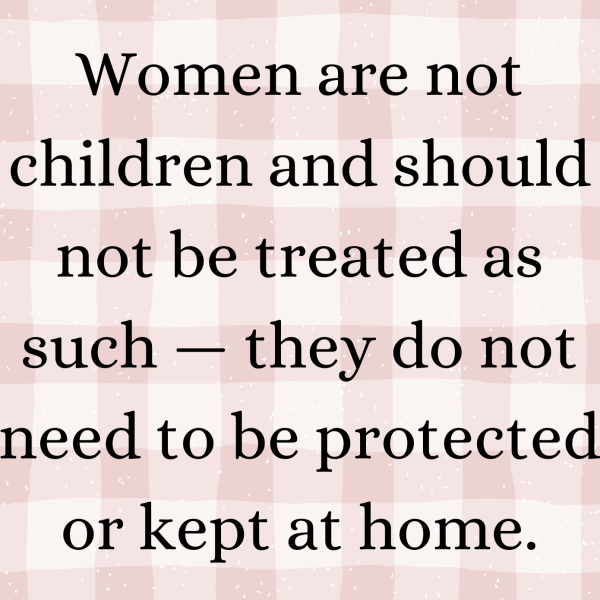 thinking or “more effort.” Being protective towards women because you believe they’re fragile or breakable is also unnecessary — doing so because they’re female is vastly different than being protective because they’re human. Taking small steps or checking ourselves within conversation to make sure we’re not being sexist (even in a benevolent way!) can help ensure we’re promoting equality. As the amount of teenagers on social media grows, including at MVHS, we need to be aware of the harmful impacts of benevolent sexism so we can avoid it.
thinking or “more effort.” Being protective towards women because you believe they’re fragile or breakable is also unnecessary — doing so because they’re female is vastly different than being protective because they’re human. Taking small steps or checking ourselves within conversation to make sure we’re not being sexist (even in a benevolent way!) can help ensure we’re promoting equality. As the amount of teenagers on social media grows, including at MVHS, we need to be aware of the harmful impacts of benevolent sexism so we can avoid it.
Choosing to be a more traditional wife is in no way negative. If traditional feminine roles and traits sound appealing, then embrace them. But it becomes a problem when benevolent sexism arises and women feel pressured into taking on “lower status” roles because they are supposedly inherently more suited to do so. Women are not children and should not be treated as such — they do not need to be protected or kept at home because they are inherently more fragile, warm or nurturing. Treat women like humans — benevolent sexism may make someone feel like a chivalrous protector who only wants the best for the weaker sex, but all it does is solidify the misleading idea that women are inferior.

















